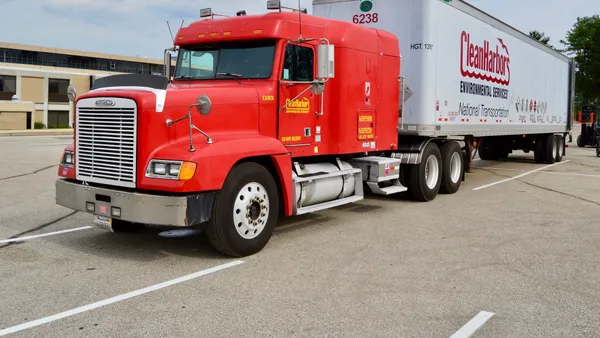Dive Brief:
- The results of a year-long experiment at Oslo's Klemetsrud plant in Norway show that waste-to-energy (WTE) facilities have the potential to play a role in mitigating the effects of climate change by capturing carbon dioxide emissions, as reported by Reuters.
- The Klemetsrud creates about 300,000 metric tons of carbon dioxide per year. Norway's government estimates that a similar carbon capture and storage (CCS) plant of this scale could cost at least 7.2 billion crowns (approx. $866 million), including the costs of shipping and burying the gases. This means it would cost $107 to avoid one metric ton of carbon dioxide emissions, which is far higher than the average price of about $5.60 in the European carbon market.
- If Norway approves the Klemestrud CCS plant it could begin in 2022. Germany and Sweden are also said to be looking into the technology.
Dive Insight:
According to a new study published in the peer-reviewed journal Nature Climate Change this week, countries will need to drastically increase their CCS efforts in order to meet the Paris climate agreement targets. At least 30 large-scale CCS projects are expected to be operational by 2020, but research has forecast that thousands of these facilities could be needed by 2030 in order to keep emissions in check.
While the European Commission recently cautioned against the growth of WTE hindering circular economy efforts, these types of facilities are already prevalent throughout the E.U. and more are on the way. Countries will have to weigh whether it's worth updating their existing WTE facilities with CCS technology if they could eventually move away from incineration in the future.
In the U.S., the amount of carbon dioxide equivalent emissions created by the solid waste industry has been steadily decreasing though remains high at an estimated 111.7 million metric tons in 2015. Solid waste combustion accounted for about 9% of those total emissions. As U.S. WTE companies work to address the needs of communities with new "zero waste" goals — many of which don't seem to include combustion — this is one avenue that could get more attention in the future.











